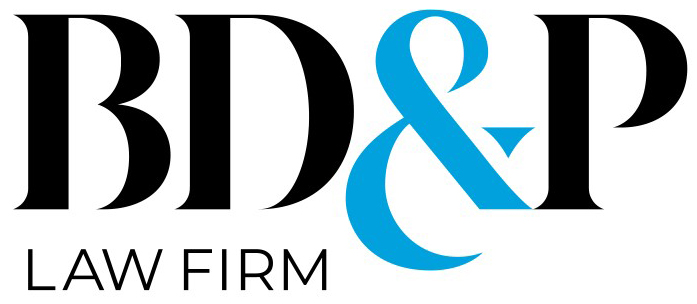Alternative Forum For Liquidation: Has a Door Opened For Winding-up Proceedings to Head Towards Arbitration?
By Francis Rouleau
 In the Province of Quebec, it is well settled law that an arbitration clause in a shareholder agreement could not interfere with the exclusive jurisdiction of the Superior Court of Quebec to force liquidation proceedings, but a recent change in statutes has now caused the Superior Court of Quebec to revise its approach and consider whether liquidation proceedings can be subject to an agreed mediation process.
In the Province of Quebec, it is well settled law that an arbitration clause in a shareholder agreement could not interfere with the exclusive jurisdiction of the Superior Court of Quebec to force liquidation proceedings, but a recent change in statutes has now caused the Superior Court of Quebec to revise its approach and consider whether liquidation proceedings can be subject to an agreed mediation process.
There may be a resolution of an ongoing debate in the courts with respect to liquidating a company using an arbitrator.
In the recent Quebec decision Capital JPEG vs. Corporation Zone B4 ltée (2019 QCCS 2986 CanLII), the Honourable Justice Babak Barin has taken a step towards clarifying whether liquidation proceedings may proceed by mediation or arbitration. For 50 years, there has been controversy as to whether winding up proceedings must be litigated before the Courts, even when the parties have chosen to include an arbitration clause in their shareholders agreement.
Before this decision, it had been held that liquidation proceedings were the exclusive jurisdiction of the courts. However, the legislative framework regarding judicial liquidation has changed and in Capital JPEG inc. v. Corporation Zone B4 ltée, Justice Barin deviates from this previous trend and adjusts to the new legislative reality.
The Plaintiff, JPEG inc. is a company that exists for investment purposes and the Defendant, Corporation Zone B4 ltée is a company that operates in the real estate and portfolio management sectors. Both the Plaintiff and the Defendant were shareholders of the company 3202 Beaubien Ltée which built and sold commercial condos and residential properties.
On March 26, 2019, the Plaintiff served an application for the dissolution and liquidation of 3202 Beaubien Ltée pursuant to sections 463 and 464 of the Quebec Business Corporations Act. These provisions allow a shareholder to demand the dissolution of a company when they perceive that the company is (i) acting abusively towards its shareholders, directors or officers; (ii) if the unanimous shareholders agreement has been breached and allows for such an application; or (iii) if dissolution appears to be a just and equitable measure in the circumstances.
The Defendant argued that the Plaintiff provoked the situation which it had alleged and that it would be harmed by such a dissolution.
Pursuant to the mediation clause in the unanimous shareholders agreement, the Defendant requested that the parties be sent to mediation to resolve their issues. JPEG inc. argued that a question of judicial liquidation could not be submitted to arbitration and that therefore, such a dispute could not be submitted to mediation either.
To support its argument, the Defendant referred to Investissement Charlevoix v. Gestion Pierre Gingras inc. (2010 QCCA 1229) in which the Court of Appeal of Quebec stated that a shareholder agreement could not interfere with the Superior Court’s jurisdiction with respect to forced liquidation proceedings. However, as Justice Barin pointed out, the legal landscape governing judicial liquidations has changed. What was once true under the Winding-Up Act, may not be so under the Quebec Business Corporations Act which has governed such proceedings since 2011.
Further, Justice Barin made it clear, in accordance with the Court of Appeal in Investissement Charlevoix, that judicial liquidation is not considered a question of public order. Therefore, Justice Barin dismissed the Plaintiff’s argument and determined that not only may the dispute proceed by mediation, but that it must proceed by mediation according to the terms of the shareholder agreement between the parties. In addition, he stated that this is consistent with the emphasis that the Quebec legislature has placed on the use of alternative dispute resolution.
The parties were ordered to mediation and the proceedings were suspended for a period of two months following the nomination of a mediator to allow the parties to engage in such a process. If they failed to reach an agreement, they were to return to the Superior Court where Justice Barin would decide whether the parties were to proceed to arbitration.
While Justice Barin decided not to definitively answer the question of whether judicial liquidation proceedings may be submitted to arbitration, as it was not the question in dispute, Justice Barin did provide insight about the matter near the end of his judgment. In obiter, he indicated that from his perspective there was nothing in the Quebec Business Corporations Act that prevented such a proceeding from heading to arbitration.
While the trend with respect to judicial liquidations had been to submit such proceedings to the courts, it appears that the Superior Court of Quebec has now fallen in line with another set of precedents. Once also a contentious issue, the Court of Appeal of Quebec has indicated in recent years that oppression remedies under the Canada Business Corporations Act may proceed by way of arbitration. The same principle in all likelihood applies under the Quebec Business Corporations Act.
Has Justice Barin put judicial liquidation proceedings on the road towards a similar destination? With his statement at the end of his judgment, Justice Barin has taken a step towards answering a long-held and consequential question and time will tell if he will have the opportunity to give further direction on this topic in the coming months.
Stay tuned.
Francis Rouleau is the practice group leader of the Litigation group in the Montreal office and has considerable experience in corporate litigation and shareholder disputes.



















